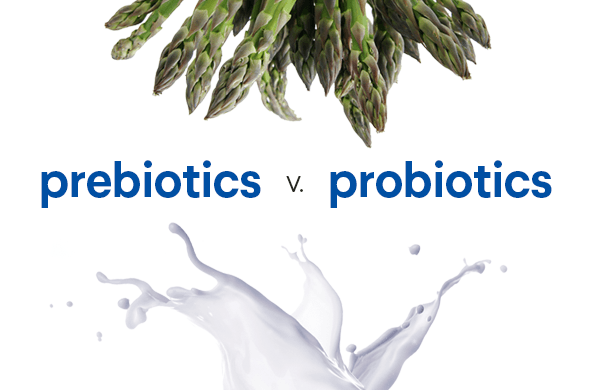Prebiotics (one thing) and probiotics (another!) are claimed by supplement firms to boost immunity, improve weight loss, and even add years to your life. probioticseverything.combio k probiotic
These same companies, who dangle these life-enhancing characteristics in the guise of an easy-to-swallow tablet, potion, or delectable lil’ gummy, also charge a hefty price for their wares. probioticseverything.combio k probiotic
First and foremost, despite all of the hype around prebiotic and probiotic supplements, scientific evidence on their benefits is still very young.
As a result, reliable evidence that taking a supplement can provide any of these benefits is difficult to come across. On supplement labels, a lot of the jargon is marketing—and not much else. probioticseverything.combio k probiotic
That isn’t to suggest that there isn’t any hope in the scientific community for what these supplements might be able to accomplish—the key word here being “may.” As a result, consider biotic supplements a “place to keep an eye on.” probioticseverything.combio k probiotic
To reinforce this theme and delve deeper into the differences between the two types of bacteria (yes, prebiotics and probiotics are both living bacteria), the benefits that either (or neither) may provide, and whether or not you should take them, we enlisted the help of some of the smartest minds in academic gastrointestinal research. probioticseverything.combio k probiotic
For the record, those are Jack Gilbert, Ph.D., a researcher at UC San Diego; Bethany Doerfler, R.D., a clinical research dietitian at Northwestern University; and David Poppers, M.D., Ph.D., a gastroenterologist at NYU Langone. probioticseverything.combio k probiotic
Allow them to guide you through the little but fascinating world of (possibly) powerful microbes.
What are probiotics, exactly?
According to Jack Gilbert, Ph.D., a researcher at the University of California, San Diego, they’re microorganisms found in fermented foods like yogurt and kimchi.
Companies claim that probiotic pills can help you lose weight or increase your immunity. The jury is still out on those benefits, but according to Gilbert, data shows that probiotics can help with Crohn’s disease, inflammatory bowel illness, and food allergies. probioticseverything.combio k probiotic
Prebiotics, on the other hand, are soluble fibers that draw water in during digestion. According to Bethany Doerfler, R.D., a clinical research dietician at Northwestern University, they also contain oligosaccharides, sugars that gut flora devour. probioticseverything.combio k probiotic
Short-chain fatty acids are released by gut bacteria when they eat these oligosaccharides, which may help persons with inflammatory bowel illnesses or conditions like IBS feel better.
Is it necessary for you to use probiotic supplements?
According to David Poppers, M.D., Ph.D., a gastroenterologist at NYU Langone, if you have chronic constipation, diarrhea, or other gastrointestinal distress and your doctor recommends taking medication, you should do so. probioticseverything.com
Everyone else may save their money, because probiotic pills offer no benefit to people who are already healthy, according to Gilbert.
According to Doerfler, the research is “in the pipeline,” but it is “not there yet.”
In a probiotic supplement, what should you look for?
According to Dr. Poppers, your doctor will offer a probiotic that has been demonstrated to help with your specific problems. According to Gilbert, one strain of bacteria, Lactobacillus rhamnosus GG, is better for people who have diarrhea than others.
If a patient is on antibiotics, some doctors recommend taking probiotics. According to Poppers, consuming probiotics before, during, and after antibiotic treatment can help minimize common side effects like diarrhea. He recommends starting antibiotics with probiotics containing the saccharomyces bacteria strain and continuing for at least a few days after your therapy is finished.
A doctor may also prescribe probiotics if you have ulcerative colitis, a chronic disease that causes inflammation and ulcers in the lining of the large intestine and rectum.
While anti-inflammatory medications can benefit people with ulcerative colitis, Poppers believes there is some evidence that the supplement VSL#3, which contains eight different Bifidobacterium, Lactobacillus, and Streptococcus bacteria strains, could aid in addition to traditional treatment.
Furthermore, according to Poppers, some persons with irritable bowel syndrome (IBS), which affects an estimated 7 to 16 percent of the population in the United States, have stated that taking probiotics has helped them with symptoms such as gas, abdominal discomfort, and diarrhea. He is quick to point out, however, that the evidence isn’t conclusive, and that he doesn’t advocate a single probiotic for all IBS sufferers.
“IBS is a complicated condition. It’s possible that what works for your neighbor won’t work for you “He clarifies. “There will be a lot of trial and error, and that’s fine.”
If you suffer from any of the aforementioned conditions, using probiotic supplements in addition to your regular medication may help you manage your symptoms. However, taking probiotic pills won’t help you much if you’re in otherwise good health. And, according to Poppers, if you have a weakened immune system as a result of steroid use, chemotherapy, or HIV issues, you should avoid them entirely because they may put you at risk of bacterial infection.
At the end of the day, it’s best to see your doctor before deciding whether or not a probiotic is good for you.

